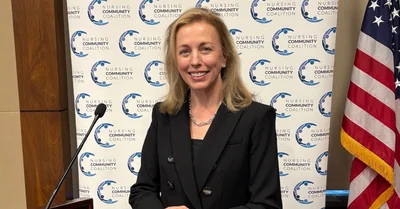Sheriff Jeff Richards, of Franklin County, Kansas, told the Federal Newswire that smaller communities and law enforcement agencies are being affected by the southern border crisis. In an interview, Richards said more resources are needed to effectively combat the cartels.
"Small and rural agencies are not immune from the negative impacts caused by the activities of drug cartels," said Richards. "Cartels make more money in trafficking people than they do in trafficking substances."
U.S. attorneys referred a total of 2,027 individuals for human trafficking offenses in fiscal year 2021, marking a 49% increase from the 1,360 persons referred in 2011, according to U.S. Department of Justice data. During that same period, prosecutions for human trafficking more than doubled, from from 729 individuals in 2011 to 1,672 individuals in 2021. By the end of 2021, state prisons housed 1,657 individuals serving sentences for human trafficking offenses.
Richards said the recent Human Smuggling statute passed by the Kansas legislature was a step forward in combating human trafficking and cartels.
"This new law is being used to close some loopholes in our Human Trafficking laws," he said. "Stronger sentencing guidelines and ensuring that forfeiture laws remain in place would both be helpful and serve as a deterrent."
Richard's also said that "limited staffing and resources" are challenges hindering law enforcement's efforts against cartels, noting that law enforcement groups and courts are currently suffering from staffing shortages, complicating the processing of immigrants with court dates.
An Air Force veteran with over three decades of law enforcement expertise, Richards has been the Franklin County sheriff for a decade. Prior to his current position, he contributed to the Human Trafficking Advisory Board for the Kansas attorney general. Additionally, Richards holds membership in the National Sheriffs Border Security Committee and the National Sheriffs Homeland Security Committee.









